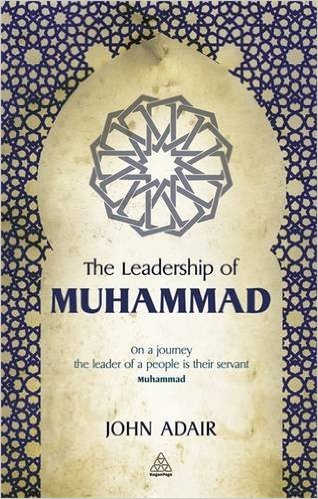Overall Rating: 4/5-Good read
Once a senior lecturer and adviser at the Royal Military Academy Sandhurst, John Adair is now one of the world’s foremost experts on leadership and leadership development. In this book, Adair draws on the life of the Prophet ﷺ and demonstrates the many ways the Prophet ﷺ modeled being a good leader.
A very concise book, there are 8 chapters with a different overarching theme of leadership. Within each chapter are a number of anecdotes supporting the theme. At the end of each chapter is a small bulleted summary. Notably, the book blends incidents from the life of the Prophet ﷺ with Bedouin anecdotes told to the author while he served in the Arab Legion as a young man. At times, certain chapters do feel they are focusing more on Bedouin leadership rather than the leadership of the Prophet ﷺ himself.
While not a seerah book, this work definitely has a lot of useful lessons for someone studying seerah. The greatest drawback of the book is that there are very few citations for the anecdotes and quotes mentioned. Even the quote featured on the cover, “On a journey the leader of the people is their servant”, is uncited. Many of the quotes and anecdotes mentioned will be familiar to a Muslim audience and can be looked up easily using the internet. When that fails, however, the reader is left wondering about the reliability of the narration.
A well-known story of Jabir ibn Abdullah has been reproduced with the main character named “Wahb ibn Kaysan”. There is also a mention of a “legend” concerning the Prophet ﷺ and a cat. While the book does clarify that this is a legend, the presence of a clearly apocryphal narration makes it difficult to ascertain the veracity of the many anecdotes mentioned through the book. Three in particular stood out to me. One is a statement attributed to Anas ibn Malik that the Prophet ﷺ served him more than he served the Prophet ﷺ. The second is a humorous incident during the building of Masjid an-Nabawi where a sahabi complained of his heavy workload. Finally, there is mention of a man who resolved a pre-Islamic blood feud on the battlefield of Uhud and as a result was executed after the battle. Although the author derives important leadership lessons from all three incidents, I have never come across the incidents in my own reading of the seerah. Without having any reference for where these three incidents came from, I am forced to remain agnostic to their authenticity.
Overall, this book is a quick read and gives ample lessons from the seerah. At its relatively inexpensive price point ($20), it makes a fantastic supplement to more thorough works covering the seerah.


Leave a Reply